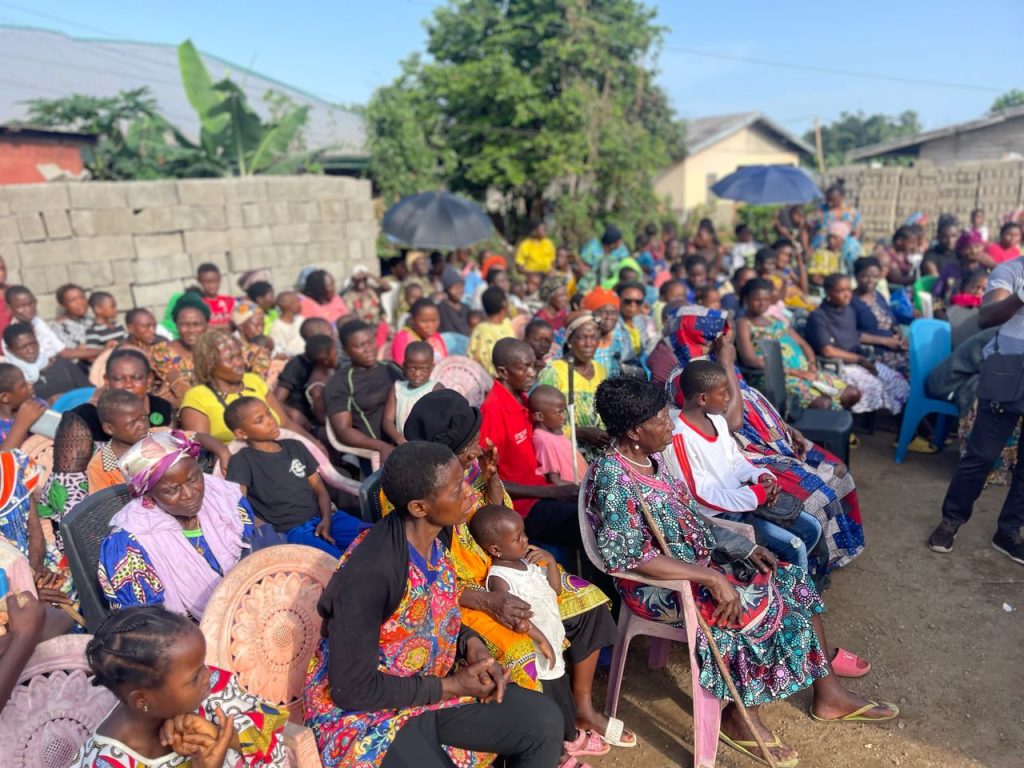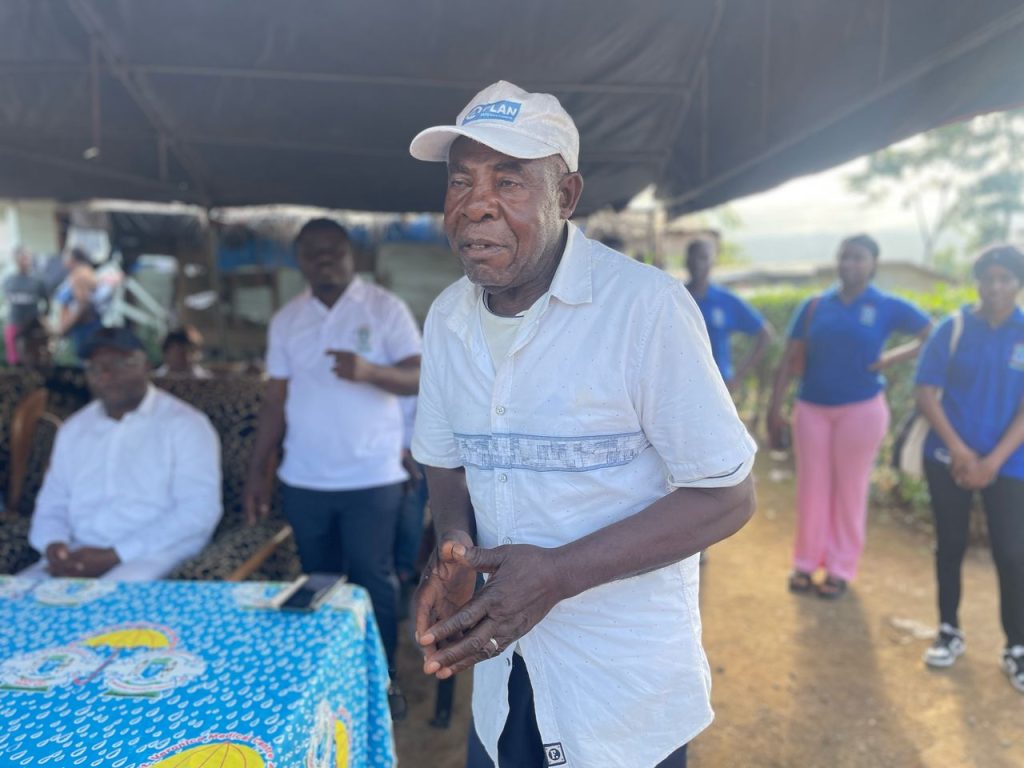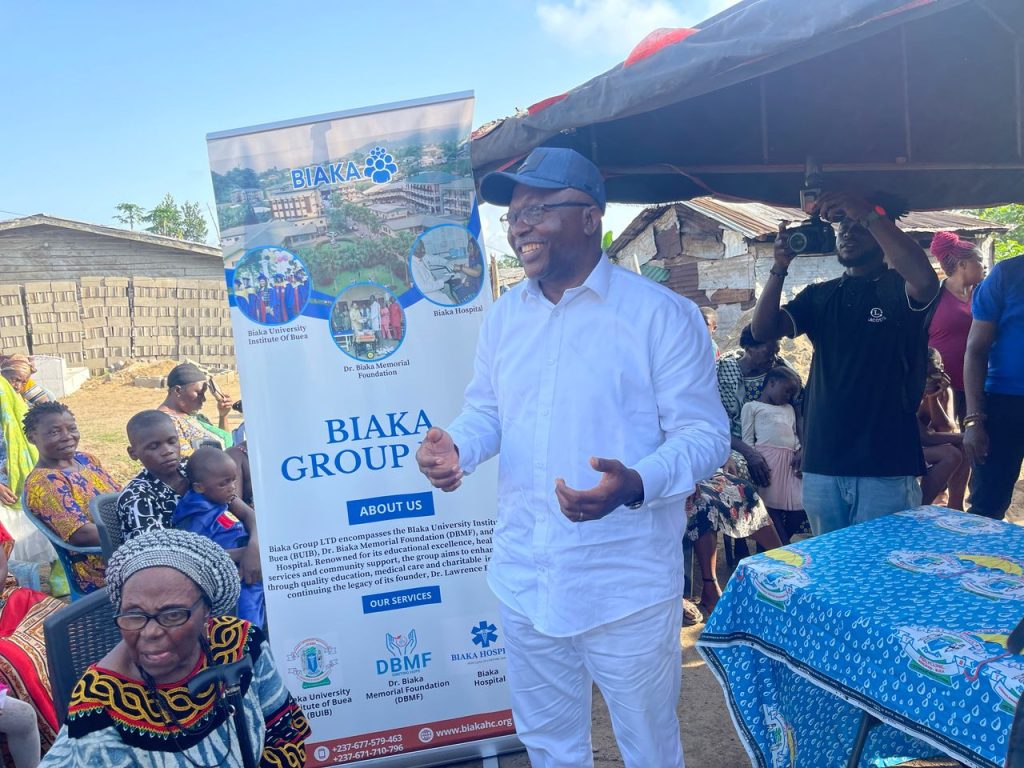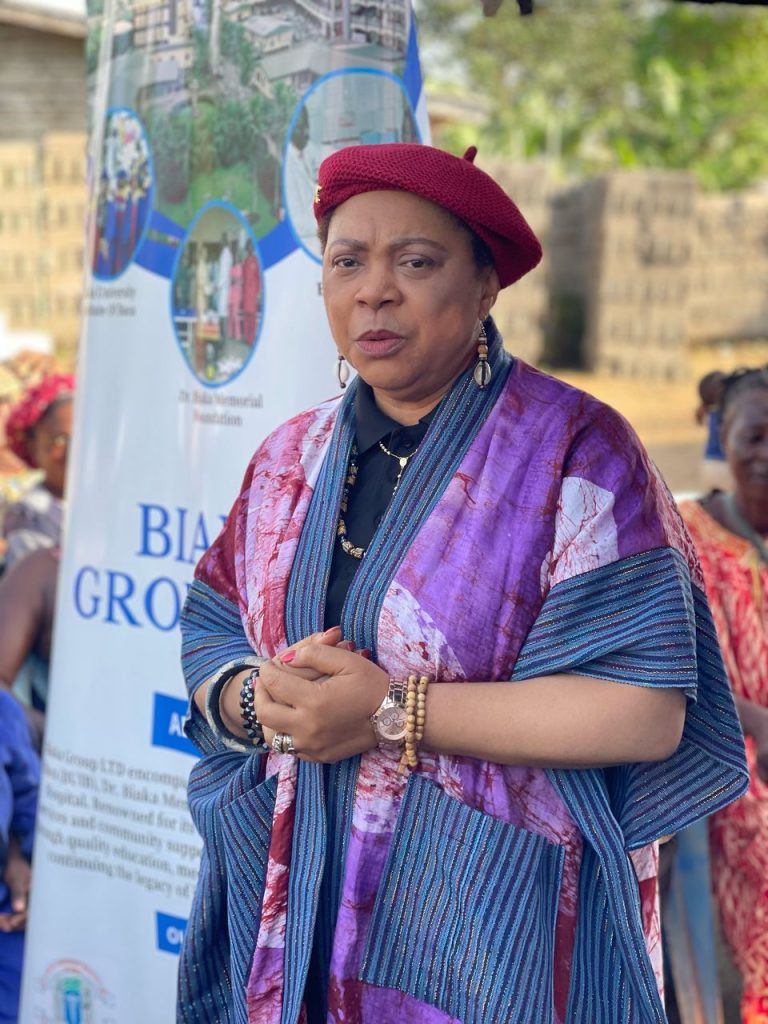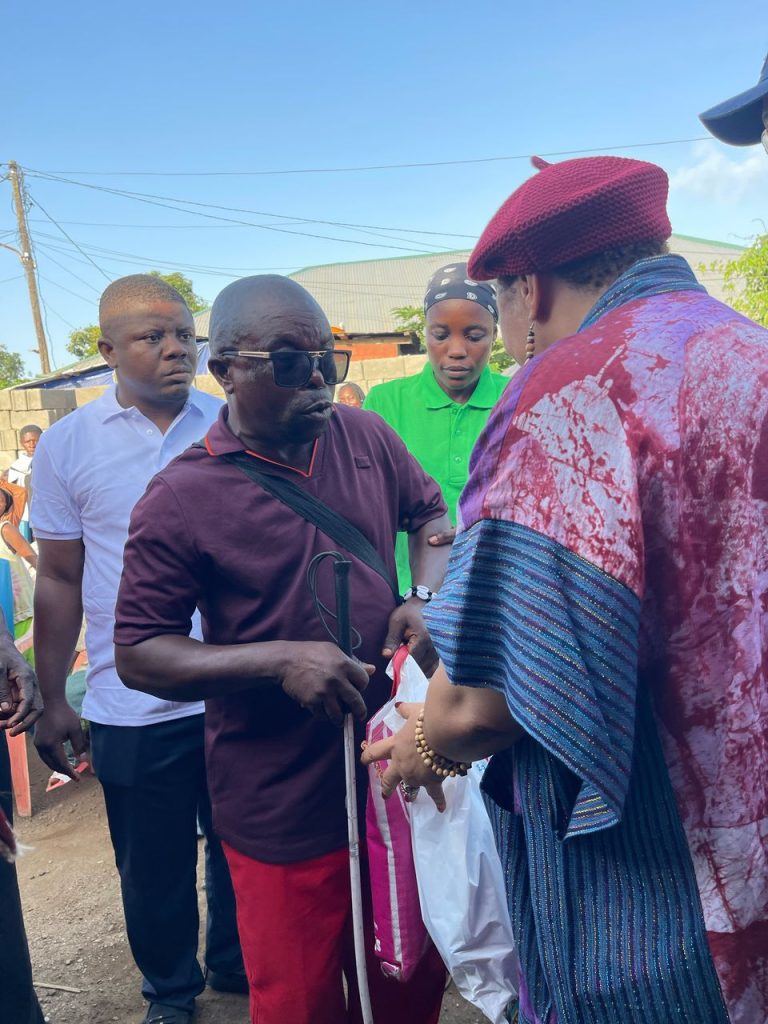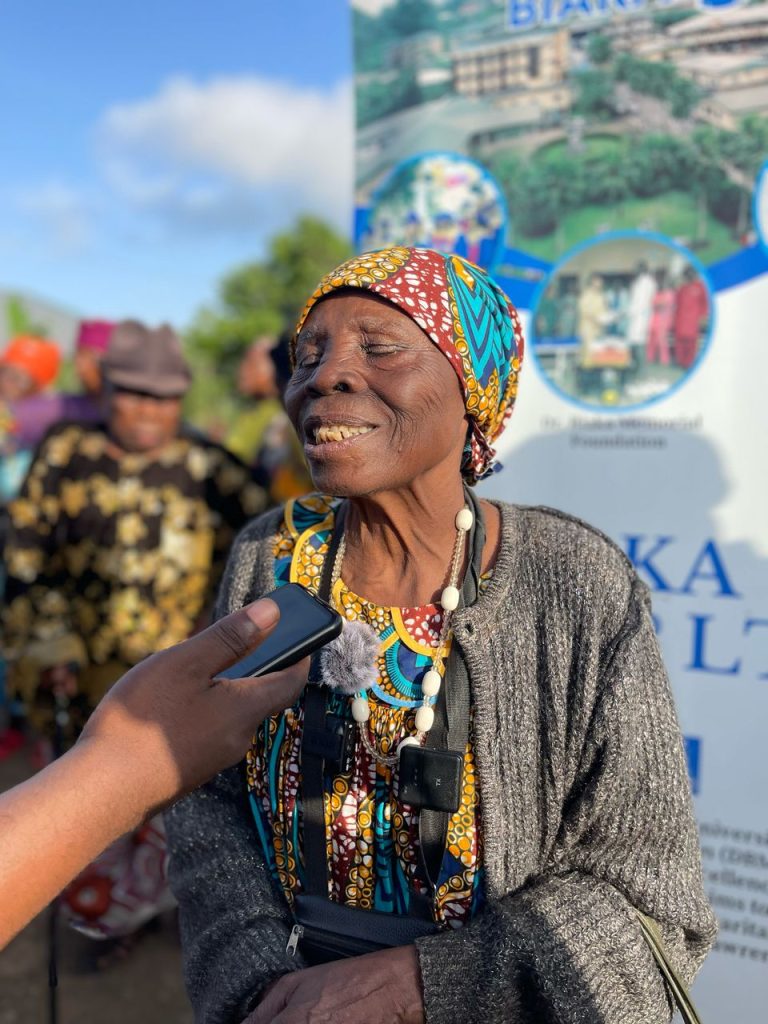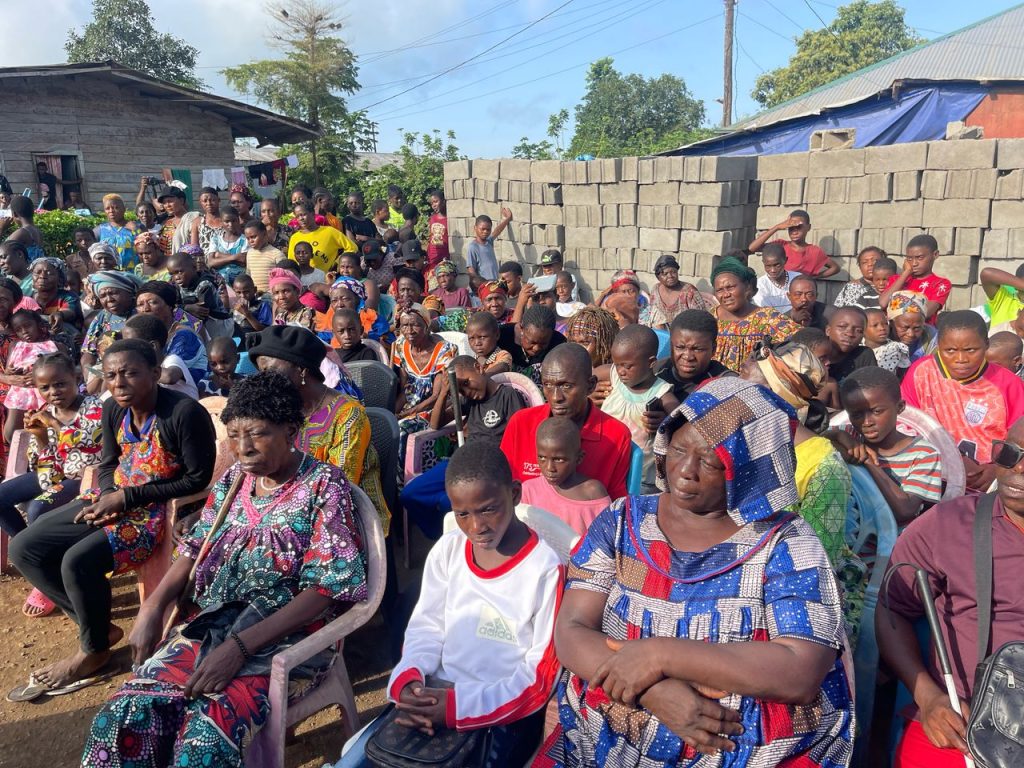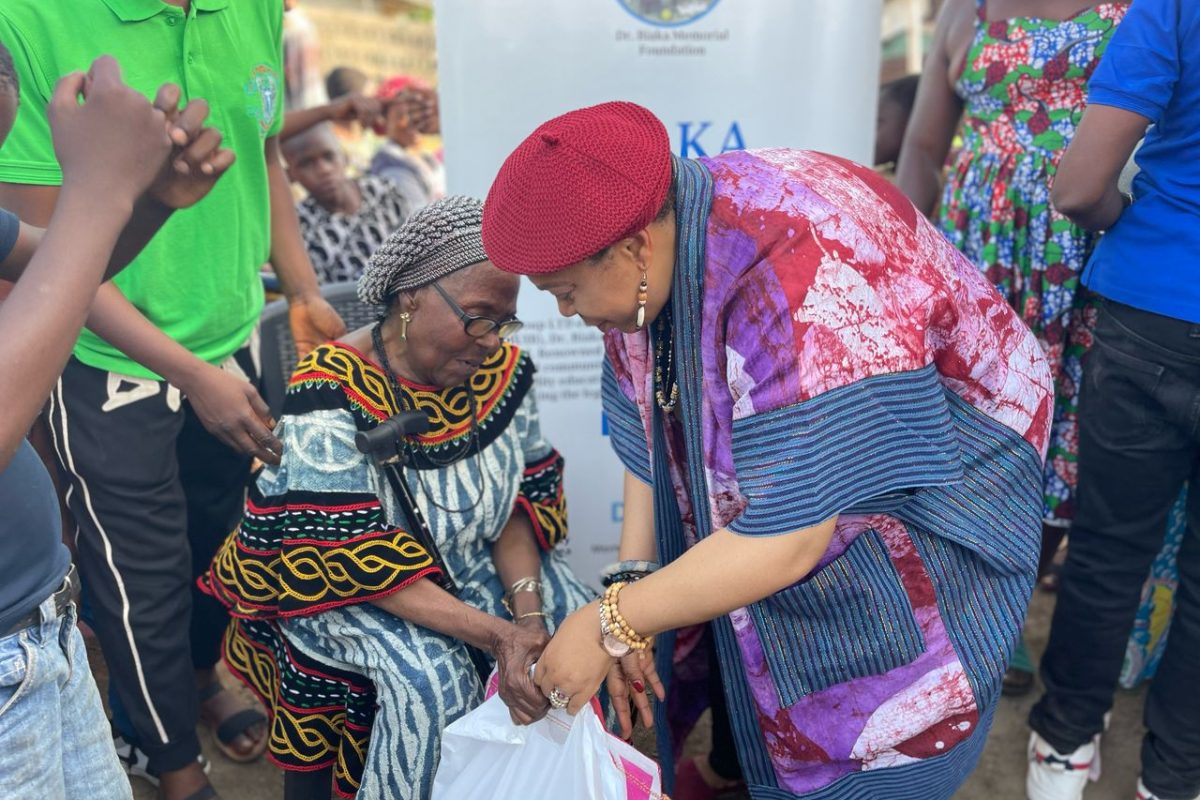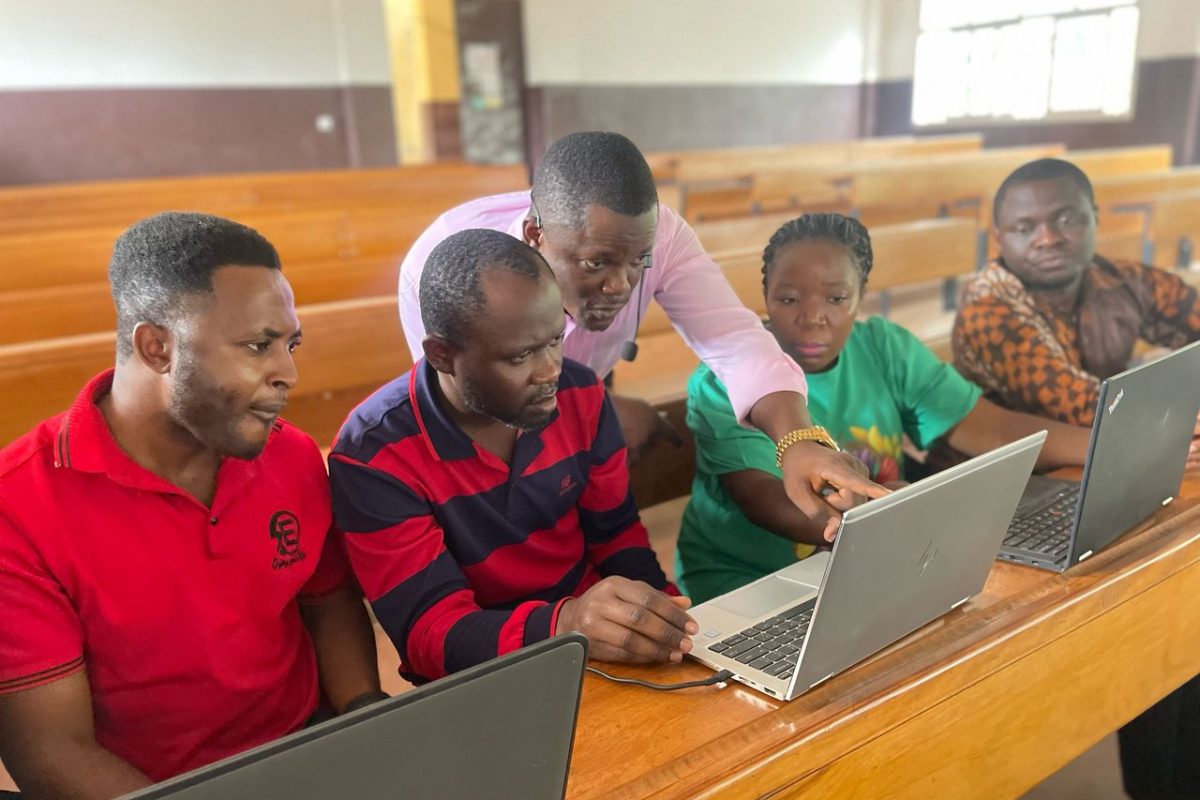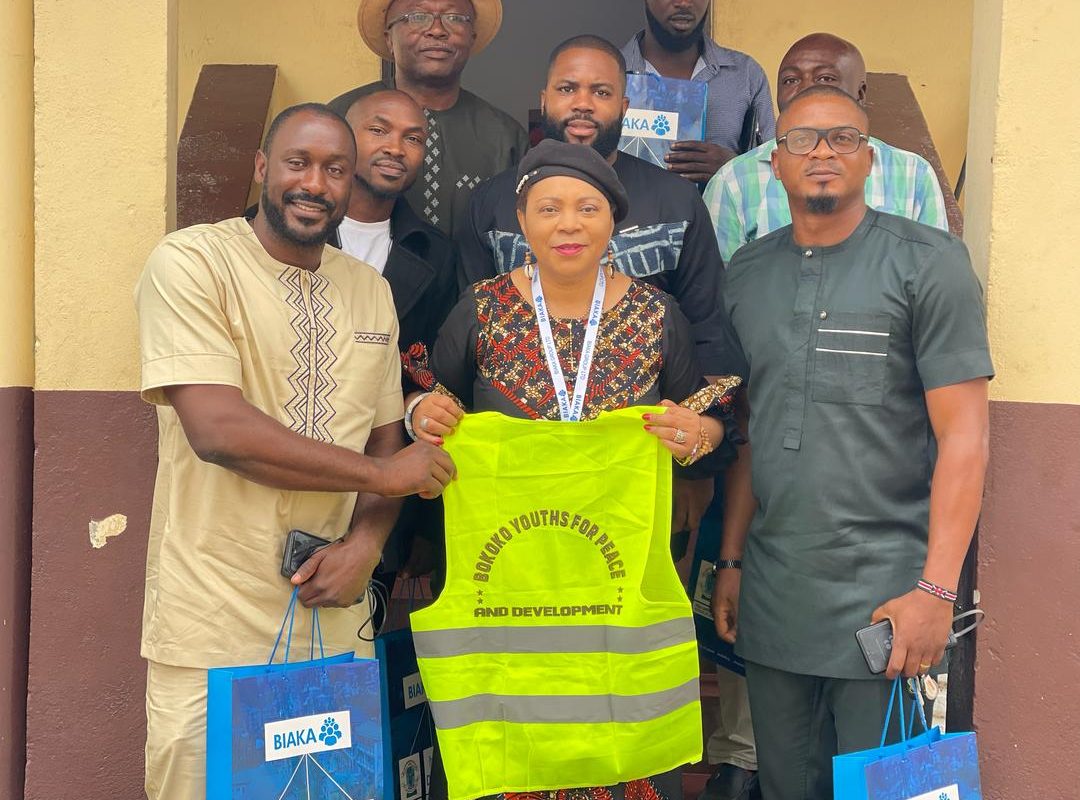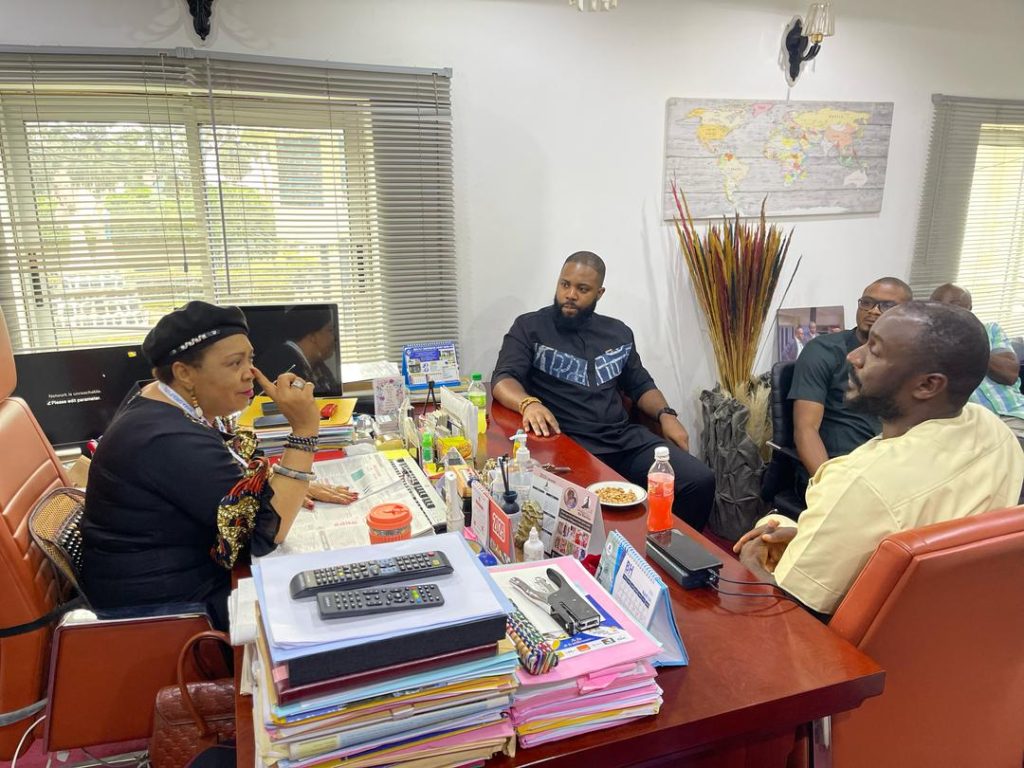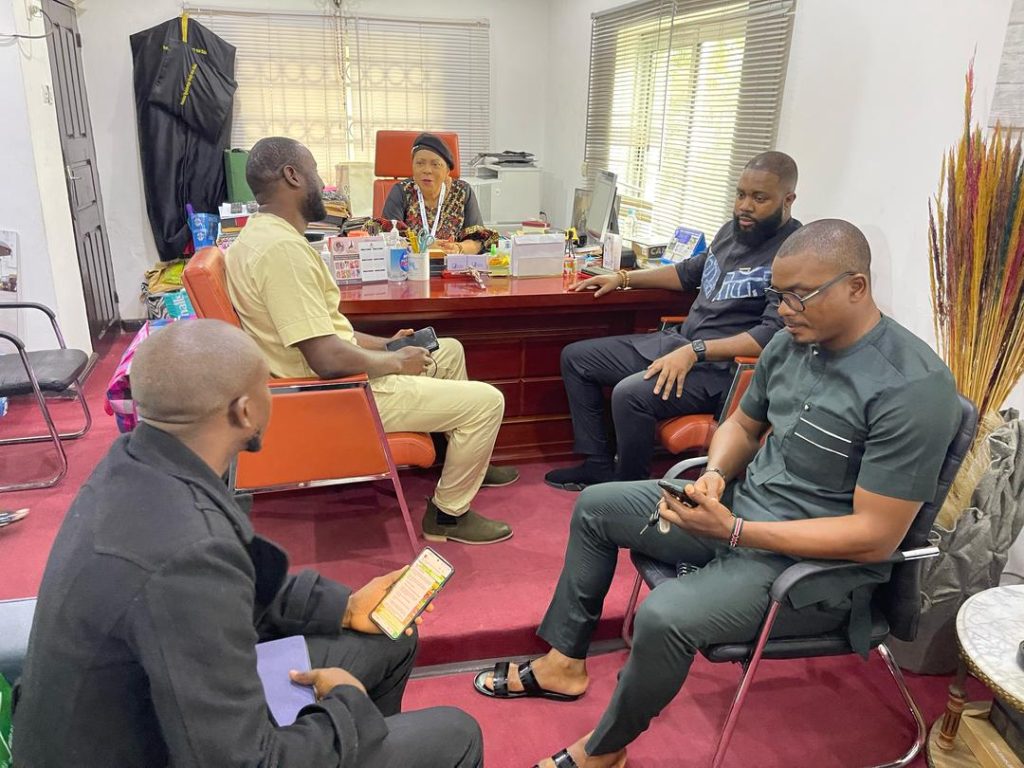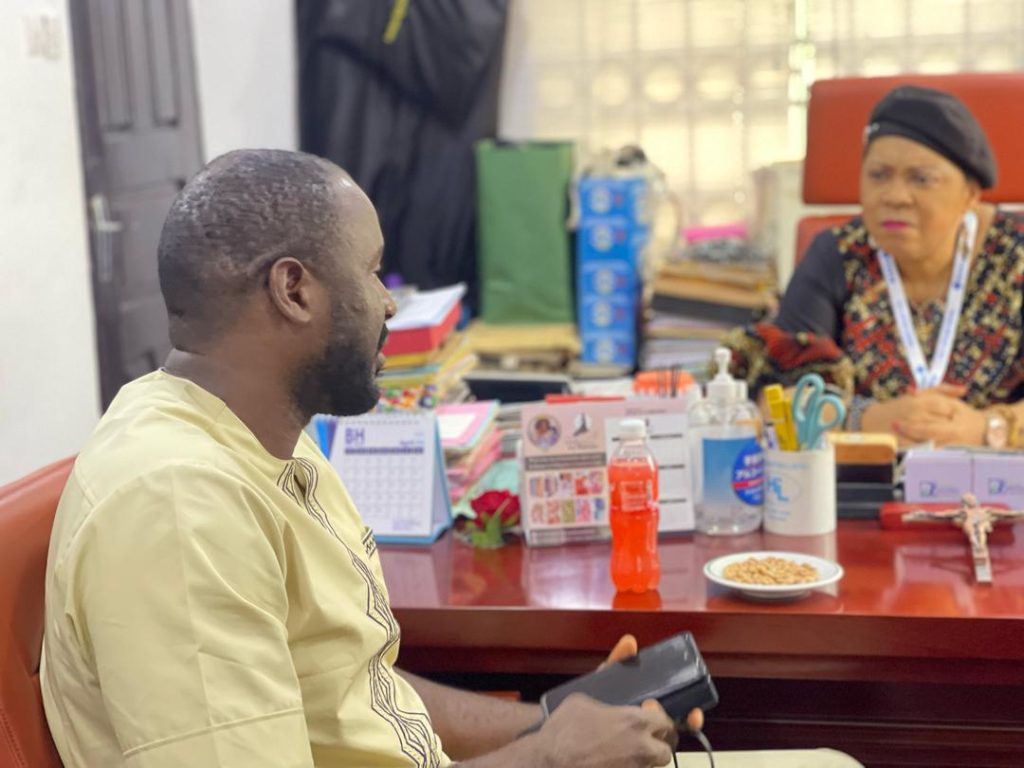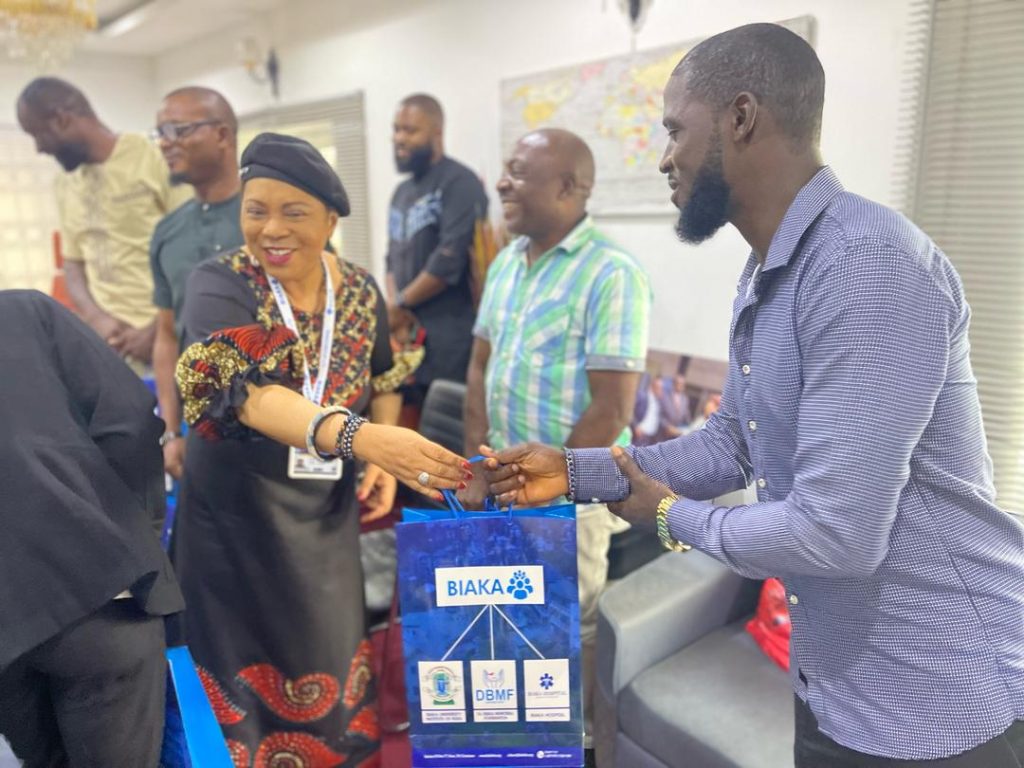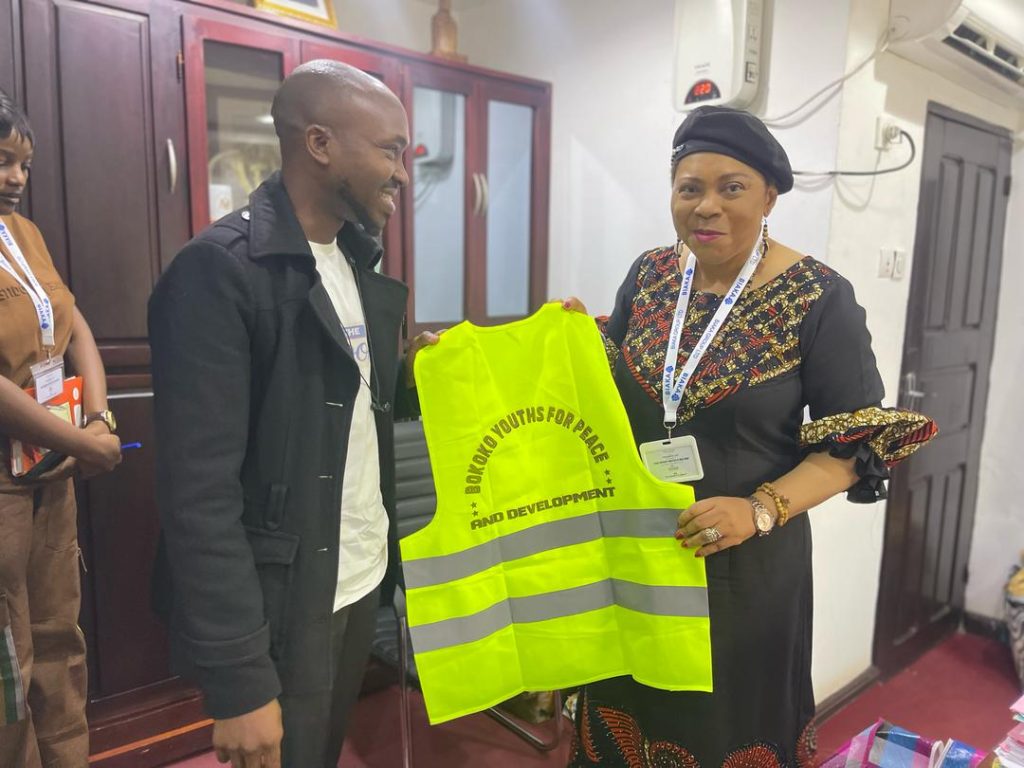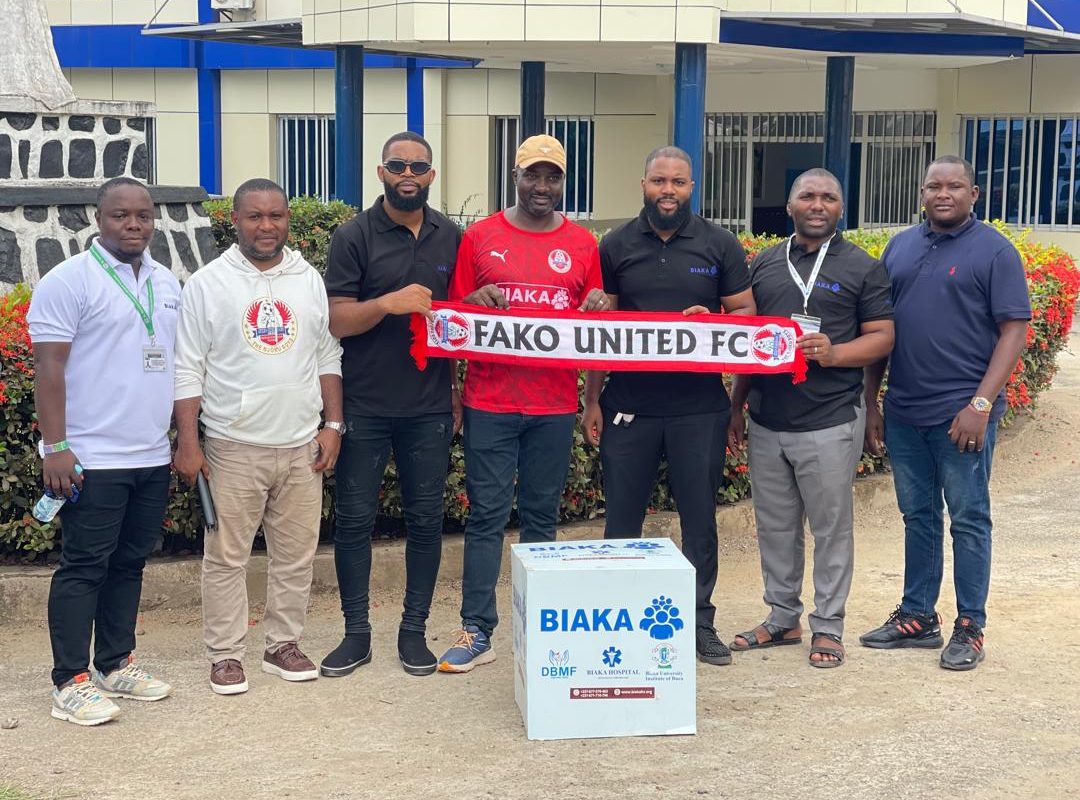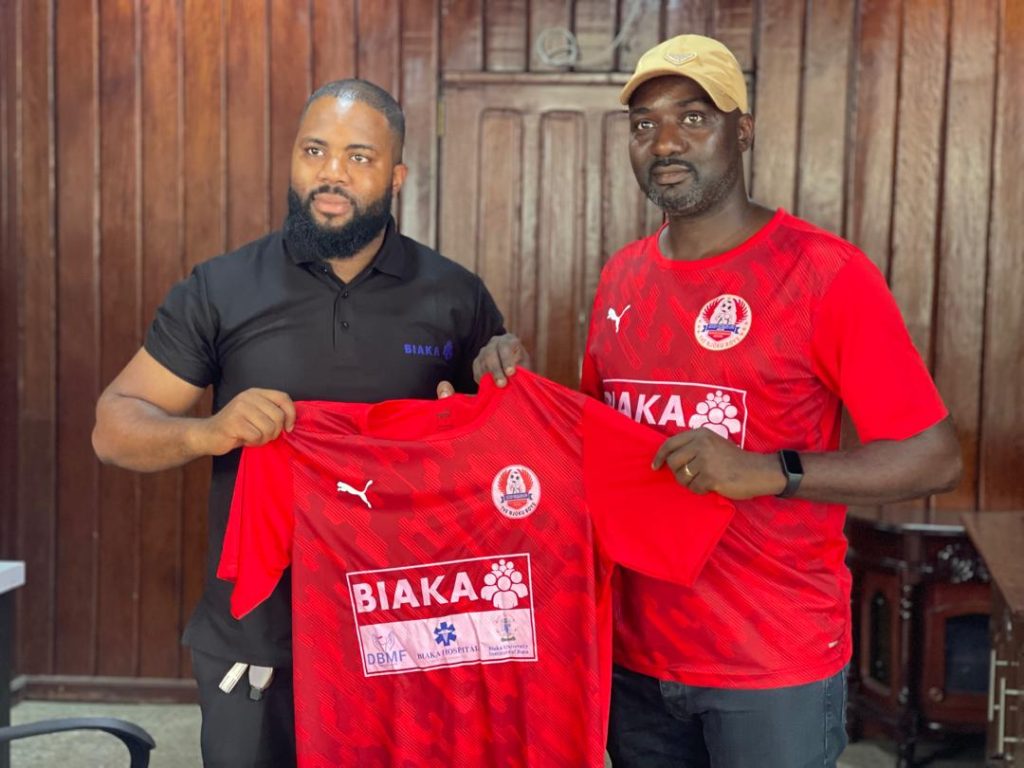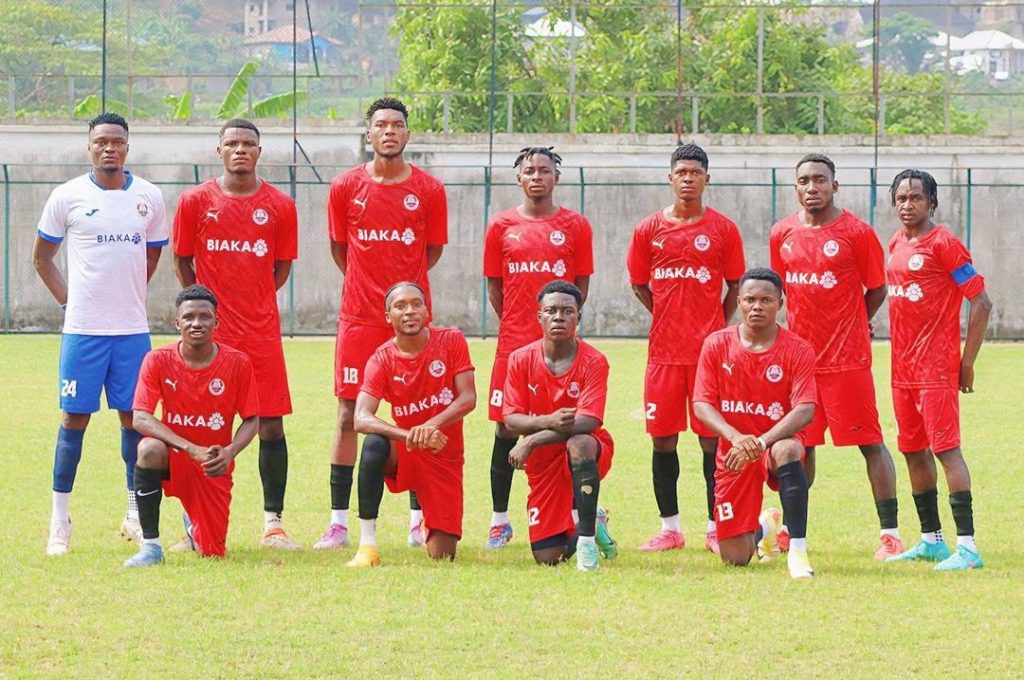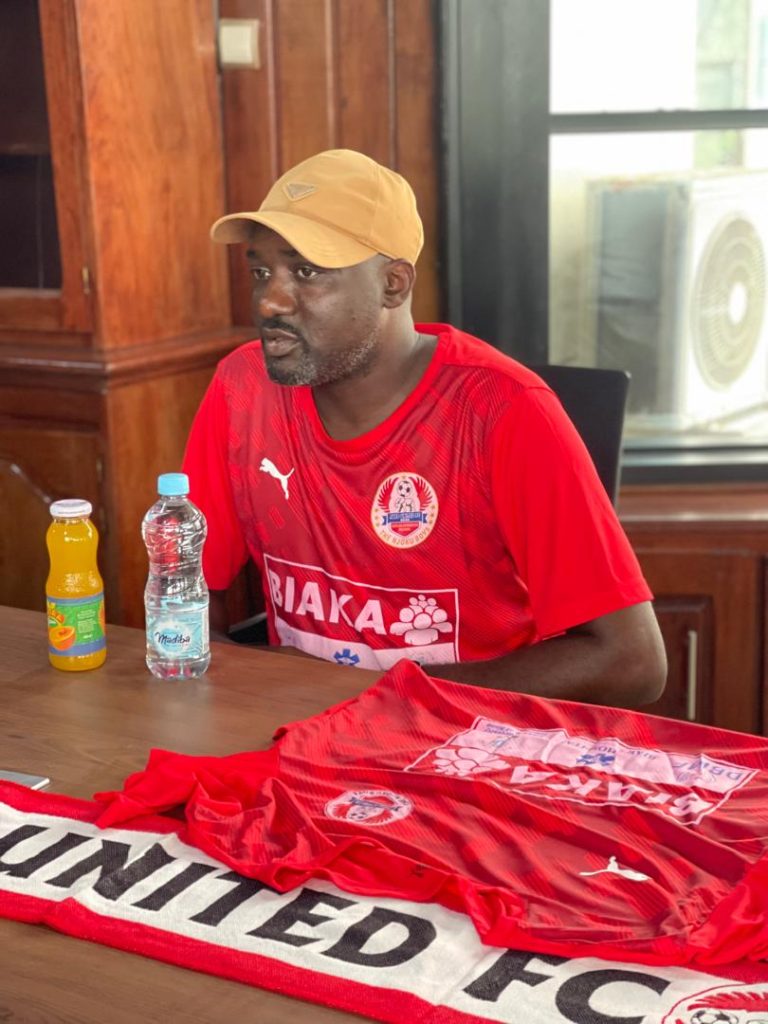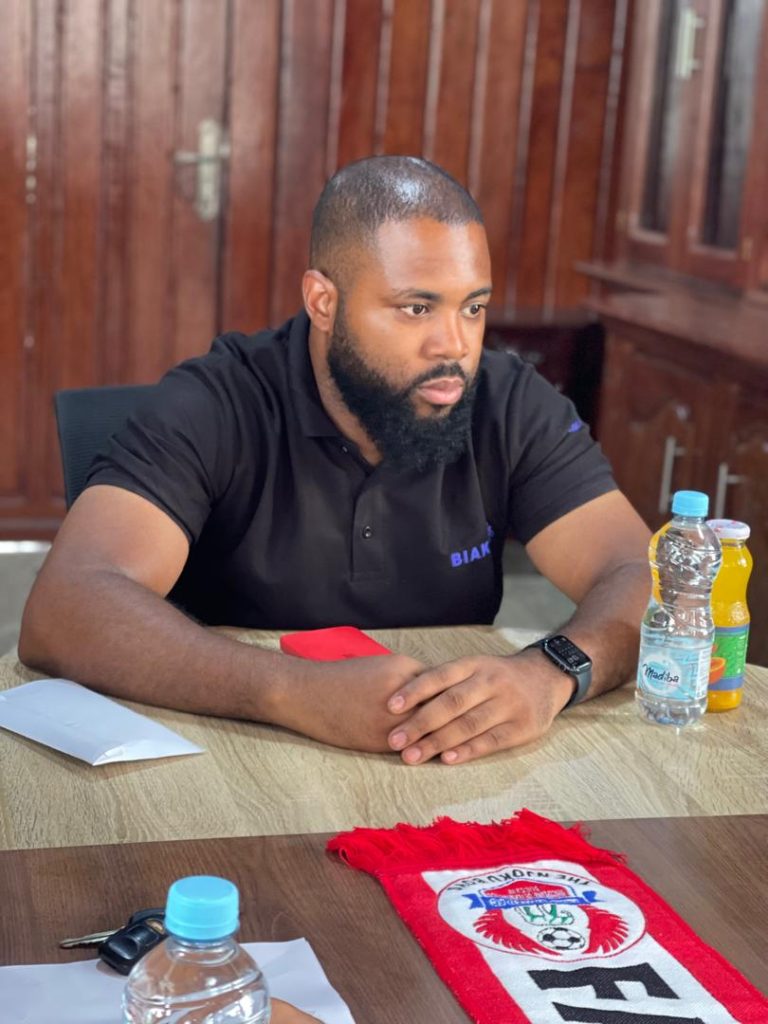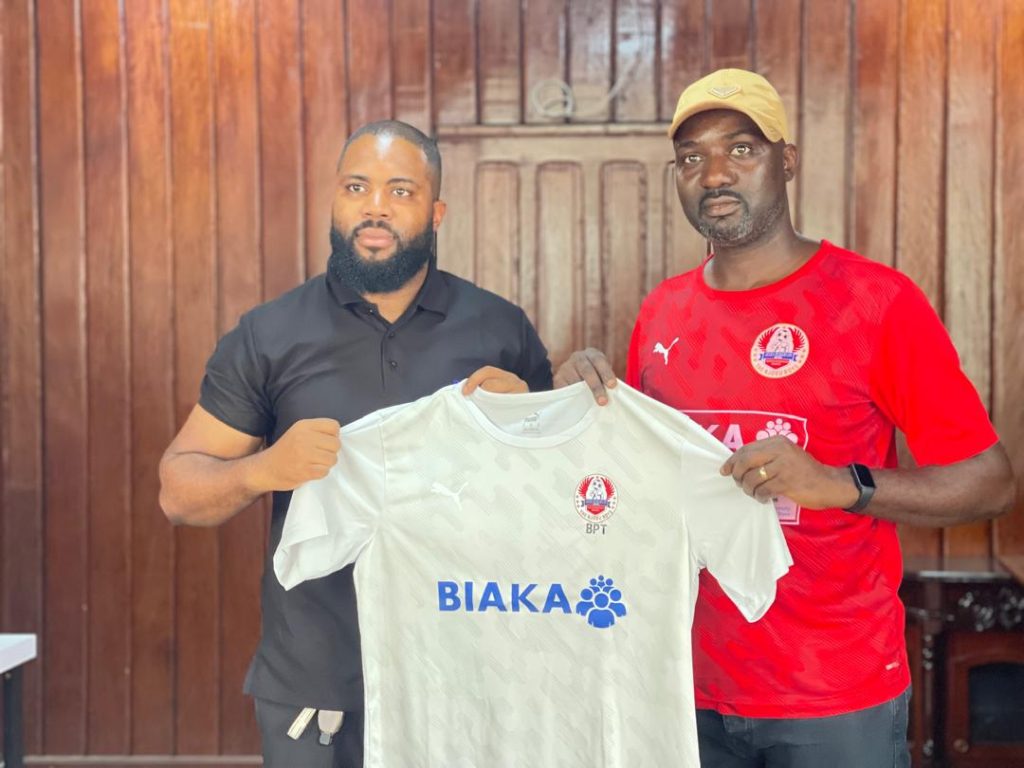To enhance digital teaching competencies and promote innovation in higher education delivery, the Biaka University Institute of Buea (BUIB) hosted a two-day workshop focused on the effective use of e-learning platforms. The training, organized by the institution’s academic office on April 18 & 19, brought together the entire teaching staff of BUIB for two days of intensive learning, practical exercises, and capacity building under the theme Design and Development of Online Teaching; Strategies And Tools For BUIB E-Learning Platform for Effective Hybrid Implementation
Day One: Laying the Foundation for Digital Instruction
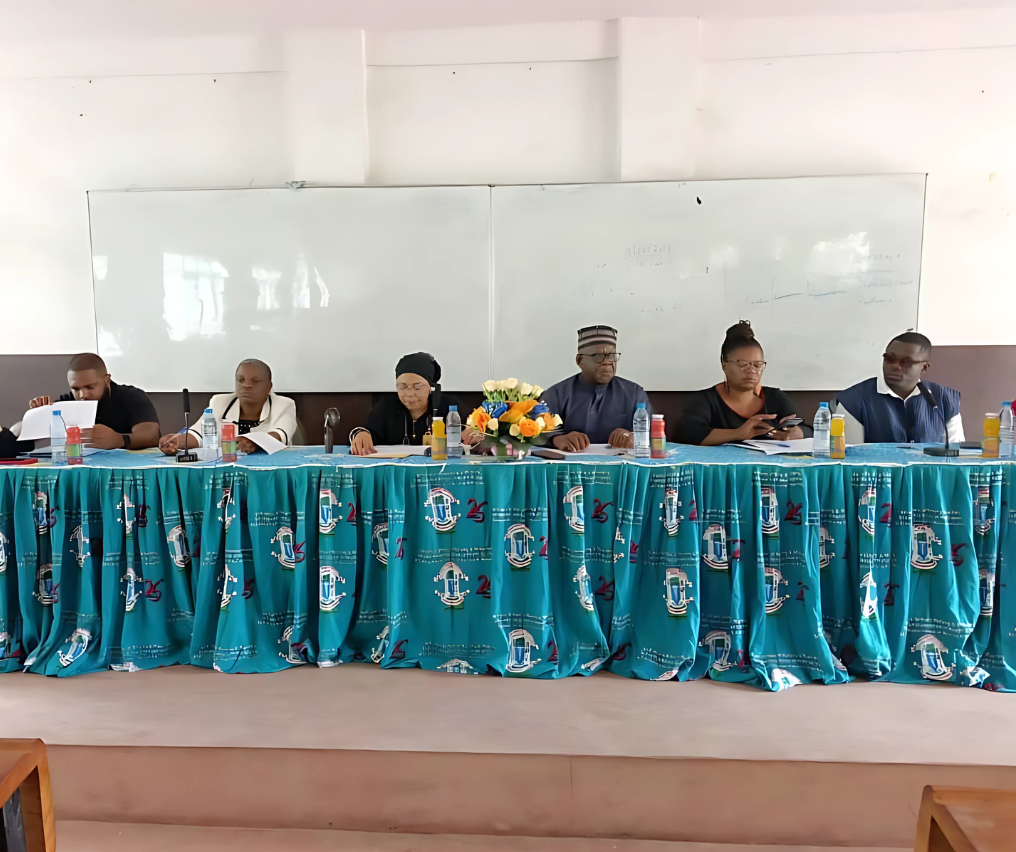
The workshop opened on a high note with the assembly of teaching staff at the university’s conference hall. The Deputy Vice Chancellor in charge of Academic Affairs officially called the session to order, setting the stage for a packed program of activities.
In her welcome address, the Vice Chancellor of BUIB, Dr. Mrs. Francisca Hongla Biaka, expressed her gratitude to the teaching staff for turning out in large numbers and embracing the evolving dynamics of teaching and learning. She emphasized the importance of digital literacy in today’s academic environment and reiterated the institution’s commitment to equipping its faculty with the skills necessary to thrive in a tech-driven educational landscape.
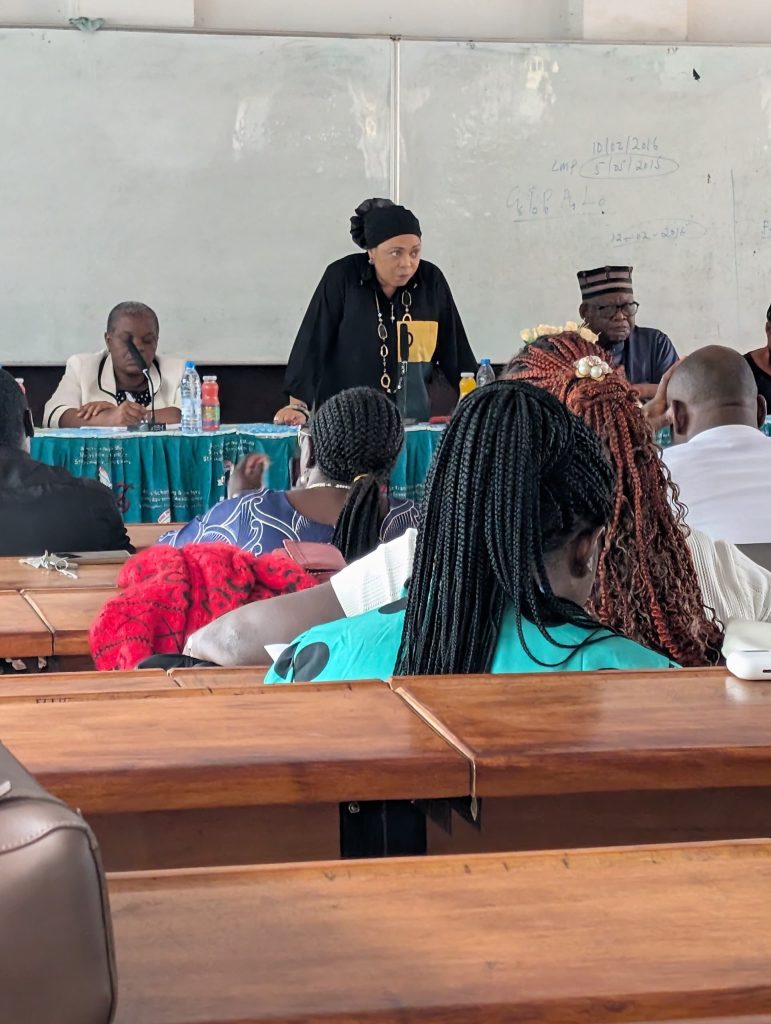
“Our students are evolving, and so must we,” she reittirated. “This workshop is part of a larger institutional goal to transition into a hybrid model of instruction that blends face-to-face and online delivery.”
The first presentation of the day was delivered by Dr. Emmanuel Mbah, a seasoned educationist and digital learning advocate. He spoke on “Designing Lessons for Online Teaching,” where he broke down the principles of structuring lessons for a virtual environment. Dr. Mbah emphasized clarity, interactivity, and learner engagement as pillars of successful online instruction.
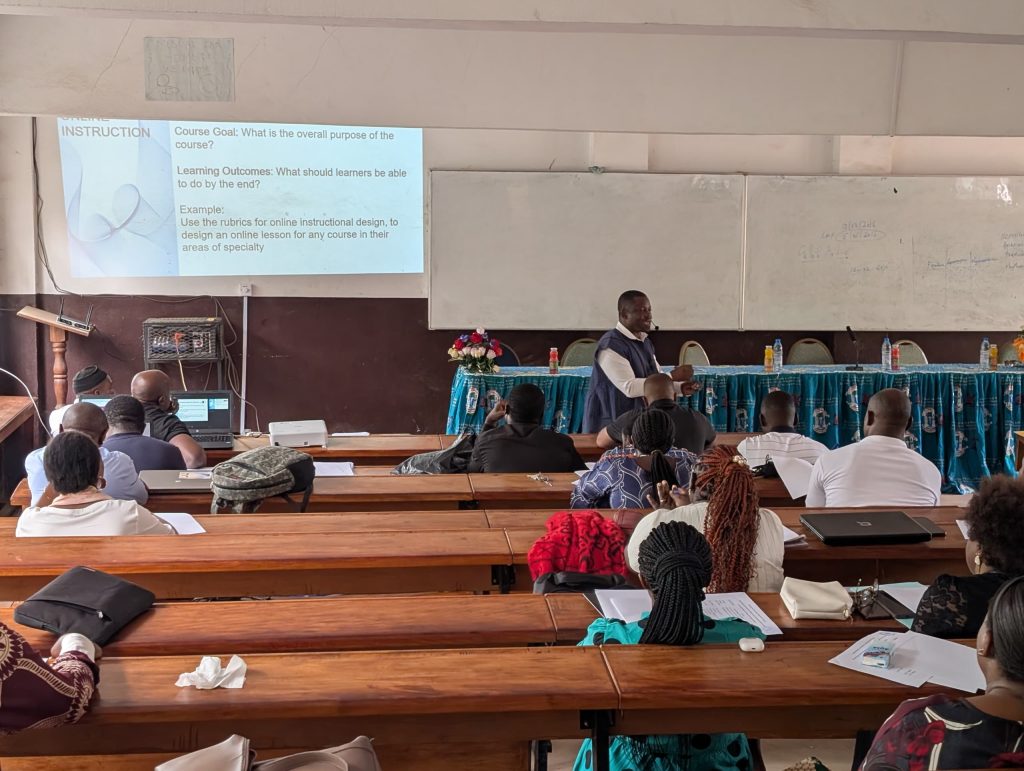
Following his presentation, Mr. Boma William led the teaching staff through a hands-on session on basic computer skills. The practical segment targeted lecturers who needed to improve their proficiency in using essential digital tools, such as Microsoft Office, internet navigation, and email management. This session proved vital in laying a strong foundation for more advanced training in the afternoon.

After a short coffee break, the session resumed with Dr. Emmanuel Mbah returning to handle two highly anticipated topics: “Developing Content and Instructional Materials for Online Teaching” and “Introduction to the BUIB E-Learning Platform.” During these sessions, Dr. Mbah explained the process of curating academic content suitable for online delivery and walked participants through the structure and functionalities of BUIB’s proprietary e-learning platform.
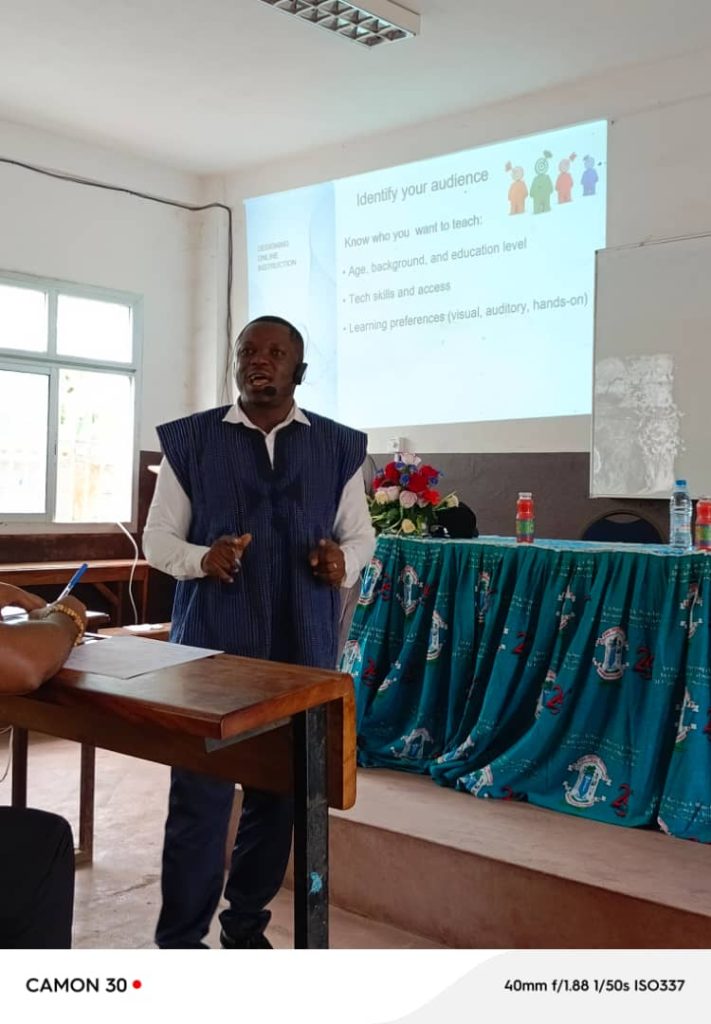
Participants had the opportunity to log into the platform, explore its interface, and tried uploading basic teaching materials. The hands-on aspect of the training helped bridge the gap between theoretical knowledge and real-time application.

Importantly, there was ample room for questions and answers, where participants shared their thoughts, worries, and suggestions. Many expressed curiosity about adapting their in-person teaching styles to a virtual environment, while others raised concerns about connectivity challenges and student engagement. The facilitators took time to address each concern, providing clarifications and practical solutions.

The day ended with a session on PowerPoint Design and Presentation Techniques delivered by the university’s IT unit. The session provided valuable insights into creating visually appealing and engaging PowerPoint slides tailored for both in-class and online audiences. Staff learned how to integrate multimedia elements, use animations effectively, and maintain visual consistency in their presentations.
Day Two: Deep Dive into E-Learning Tools and Assessment Strategies
Day Two opened under the watch of the Deputy Vice Chancellor i/c Corporation and Innovation, Dr. Feh Mary, with a word of prayer to set a tone of reflection and purpose. The morning session was dedicated entirely to hands-on activities focused on the core tools within the e-learning platform. Staff members were guided on how to upload lecture resources, create and manage forums and wikis, and design interactive activities to promote student engagement.
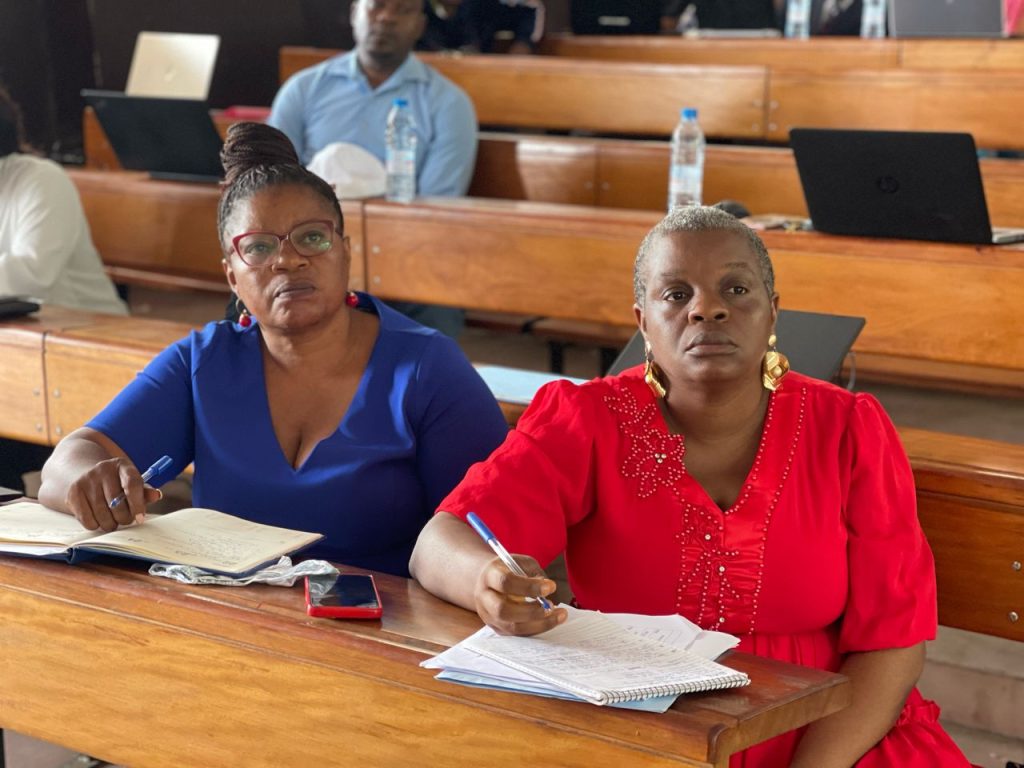
This practical approach gave lecturers the chance to apply what they had learned on Day One in a more technical and immersive manner. For many, it was a refreshing experience to discover the diverse functionalities of the platform and how each could be adapted to suit their teaching needs.
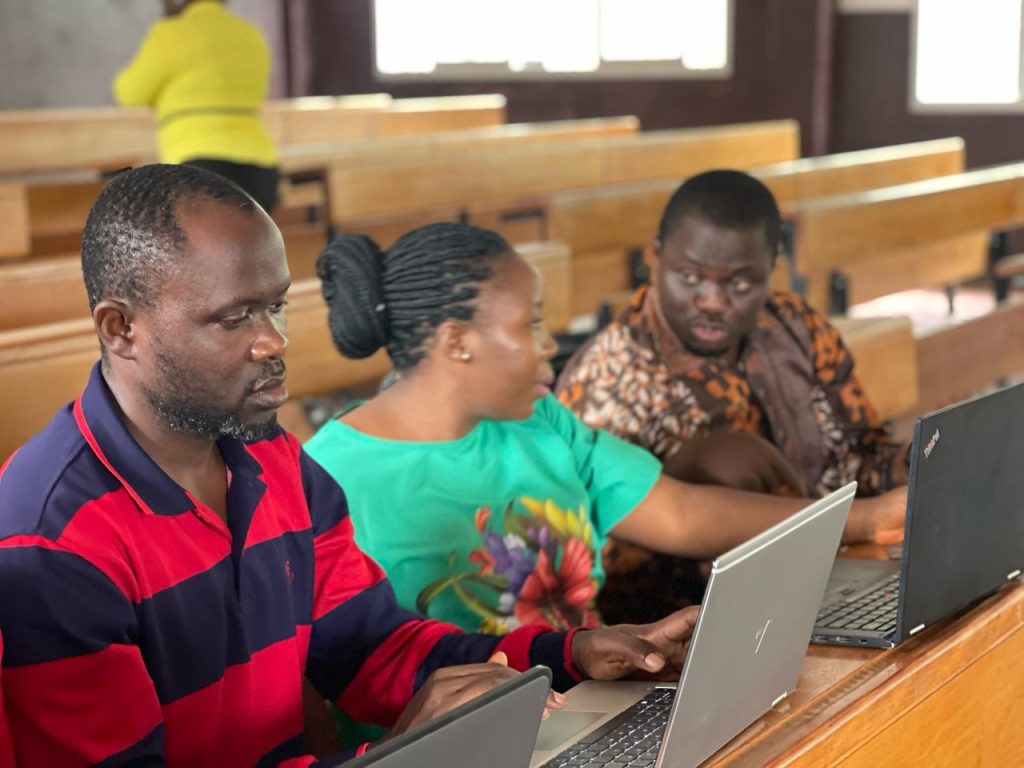
After a brief coffee break, Dr. Emmanuel Mbah resumed with an in-depth session on scheduling synchronous classes. He explained the various formats of live classes, including Zoom integration and webinar-style lessons. He also elaborated on best practices for scheduling, managing attendance, and maintaining student participation in live sessions.

The training progressed into another crucial topic: assessment in an online learning environment. Dr. Mbah guided participants on how to design quizzes, assignments, and portfolios using the e-learning platform. He explained the importance of aligning assessments with learning objectives and shared techniques for ensuring academic integrity in virtual assessments.
Lecturers explored the quiz creation feature, including question types such as multiple choice, short answer, and fill-in-the-blank. They also experimented with setting time limits, grading schemes, and feedback options. Additionally, Dr. Mbah introduced the concept of e-portfolios as a means of tracking and showcasing student progress over time, a method that has gained popularity in modern pedagogy.
Just like on Day One, a question-and-answer session was held, allowing lecturers to further express concerns and seek clarity on technical difficulties or pedagogical strategies. Several staff members voiced their enthusiasm for the new teaching mode but requested continued support as they transitioned to using the tools more regularly.

The workshop ended with a working session, where lecturers were tasked with developing and uploading a sample course module to the e-learning platform. This exercise served both as an evaluation and an opportunity for peer review. Participants were able to showcase what they had learned over the two days while receiving feedback from facilitators and colleagues.
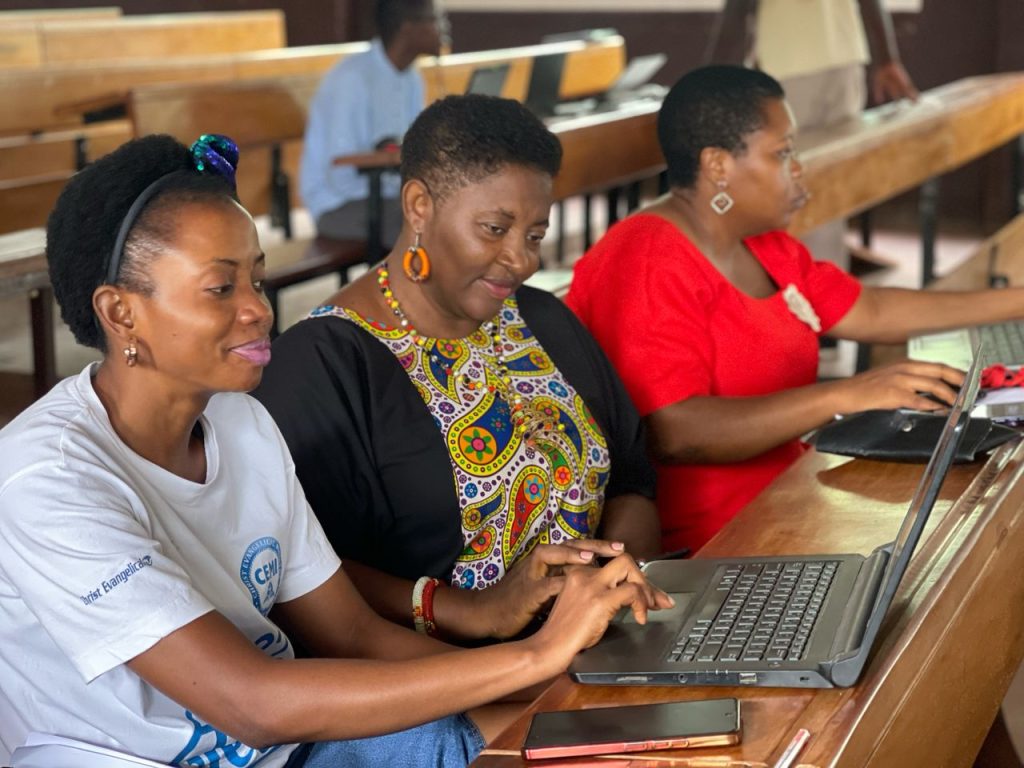
By the close of the workshop, there was a palpable sense of excitement and confidence among the teaching staff. Many lecturers expressed appreciation for the hands-on nature of the training and acknowledged the value it added to their professional growth.
Mme Clementine Chung noted, “I normally have a phobia for technology but I must attest that this workshop has opened my eyes to the power of technology in the classroom. I now feel equipped to take my lessons beyond the four walls and connect more meaningfully with my students.”

The Director of Academic Affairs, Mr. Nemkul Samuel on behalf of Academic Affairs Bureau that oversaw the workshop from start to finish, congratulated the entire team for their presence, active participation and assured them that follow-up sessions and technical support would be available to ensure full integration of the e-learning system.

The two-day workshop did not only reinforce BUIB’s vision of academic excellence through innovation but also marked a critical step forward in the institution’s digital transformation journey.
